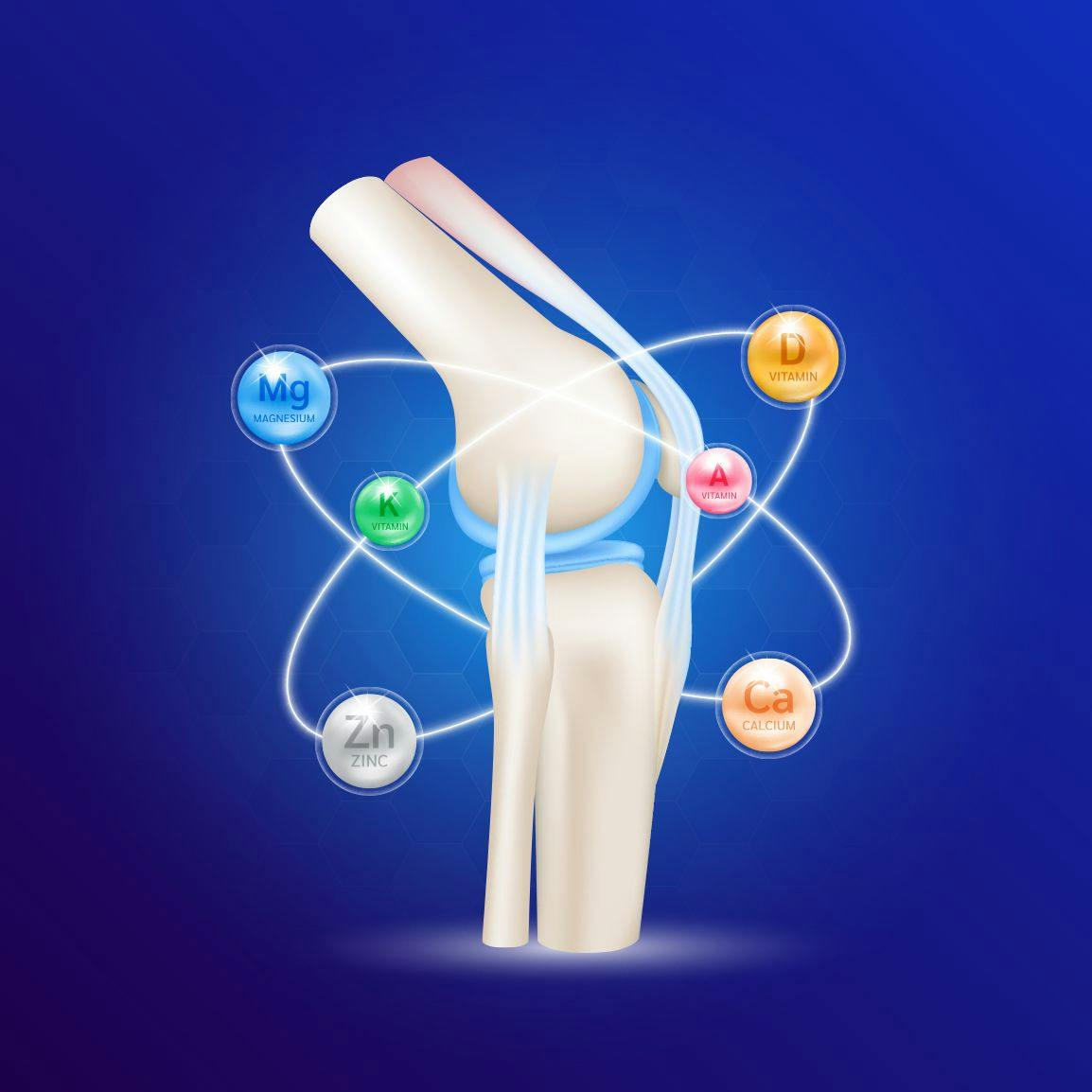The Role of Magnesium in Bone Health: A Nutrient You Shouldn’t Overlook
By:

Apex Hospitals
01-02-2024 5 Min Read

In pursuing overall well-being, we often prioritize elements like calcium and vitamin D for maintaining strong and healthy bones. However, there's an unsung hero in the realm of bone health that deserves equal attention – Magnesium. While it may not always be in the spotlight, magnesium is crucial in supporting skeletal strength and integrity.
While constituting the fourth most abundant mineral in the body, a significant 60% of magnesium resides within our bones. This essential mineral proves indispensable for over 600 chemical reactions, each playing a substantial role in vital bodily functions. These encompass pivotal aspects such as nerve and muscle functionality, protein synthesis, blood glucose regulation, and blood pressure control.
Furthermore, magnesium is crucial in generating the body's primary energy currency, adenosine triphosphate (ATP).
In this blog, we'll delve into the often-overlooked connection between magnesium and bone health, exploring the vital functions of this mineral, its impact on bone density, and how ensuring an adequate magnesium intake can contribute to a resilient and robust skeletal system. Let's uncover magnesium's essential role in the intricate dance of nutrients that promote optimal bone health.
Magnesium and bone health
Even though magnesium is of the utmost significance for bone health, it is sometimes overlooked since it is overshadowed by other minerals that are considered to be more prominent. In the context of health in general, magnesium has been subject to a certain amount of neglect up until very recently.
On the other hand, this mineral acts as the gatekeeper for several processes required to maintain robust bone health. Calcium, phosphorus, and vitamin D are three of the most essential minerals that magnesium interacts with, and these interactions are closely tied to magnesium's impact on bone health. In addition, it is an essential component in regulating parathyroid hormone (PTH), which is the hormone responsible for ensuring that the body's calcium and phosphorus levels remain in the normal range.
Low magnesium levels, also known as hypomagnesemia, can inhibit organ responsiveness to parathyroid hormone (PTH), which may result in abnormalities in vitamin D metabolism and impair calcium absorption. This highlights the role of magnesium in the interactions between hormones. However, addressing these difficulties just by consuming more calcium and vitamin D supplements is insufficient. In the Women's Health Initiative Study, researchers found a correlation between high magnesium intake and a lower incidence of wrist fractures in postmenopausal women. This finding established a connection between magnesium insufficiency and osteoporosis.
It has been proven in several studies that there is a link between serum magnesium levels and bone density, with lower magnesium levels being related to decreased bone mineral density. Additionally, evidence suggests that low magnesium levels may be a contributor to inflammation, which may hasten the process of bone loss. Therefore, you must consume an adequate amount of magnesium, which can have a beneficial effect on bone mass and strength by causing the release of the hormone calcitonin. This hormone plays a significant role in maintaining calcium levels at adequate levels by pulling calcium out of the blood and soft tissues and enabling its return to the bones. Through its ability to regulate the levels of vital minerals, magnesium plays a role in preventing osteoporosis and fractures caused by osteoporosis.
Symptoms of magnesium deficiency
Low magnesium levels may not manifest noticeable symptoms until they reach a significantly depleted state. Chronic magnesium deficiency has been linked to an elevated risk of conditions such as high blood pressure, Type 2 diabetes, and osteoporosis.
In instances of deficient magnesium levels, individuals may experience:
- Nausea
- Constipation
- Headaches
- Nighttime leg cramps
- Numbness or tingling in the legs or hands
- General body weakness
- Tremors
- Heart palpitations
If there is a concern about potential low magnesium levels, seeking guidance from a healthcare professional is crucial. Discussing your symptoms and health history with your doctor will help determine the appropriate steps to address and rectify any magnesium deficiencies.
How much magnesium do you need?
Daily recommendations for magnesium intake vary depending on age, with a specific focus on women over 30 (excluding those pregnant or breastfeeding), who are advised to consume 320 mg daily (NIH, 2022). To put this into perspective regarding food sources, one cup of raw spinach provides 28 mg of magnesium, while a cup of cooked brown rice contains 86 mg (USDA).
It is essential to recognize that these figures represent baseline amounts. Individuals with deficiencies in other nutrients that rely on magnesium for absorption, such as vitamin D, or those with health conditions requiring additional magnesium may be advised by their healthcare practitioner to follow a higher dosage. If uncertainty persists, it is recommended to consult with your healthcare provider to determine the most suitable magnesium intake for your specific needs.
If you are considering discussing your magnesium levels or addressing potential vitamin deficiencies, we encourage you to schedule an appointment with our experts. Our team of healthcare professionals is dedicated to providing personalized advice and guidance tailored to your specific health needs. Taking proactive steps to address nutrient levels can contribute to overall well-being and help you achieve optimal health.
FAQS
Related Articles
Connect With Us
Health In A Snap, Just One App.
KNOW MORE































































